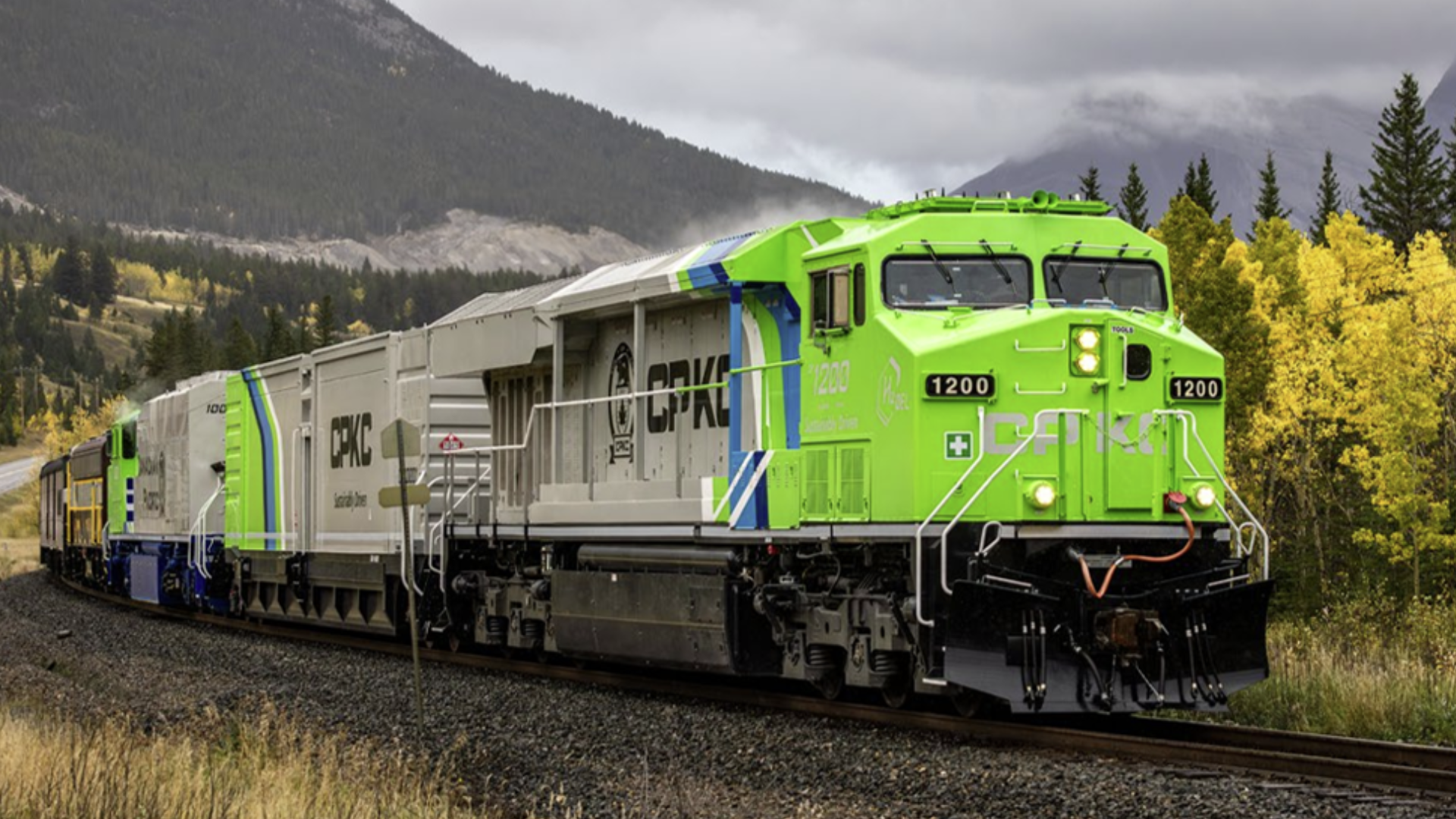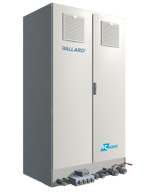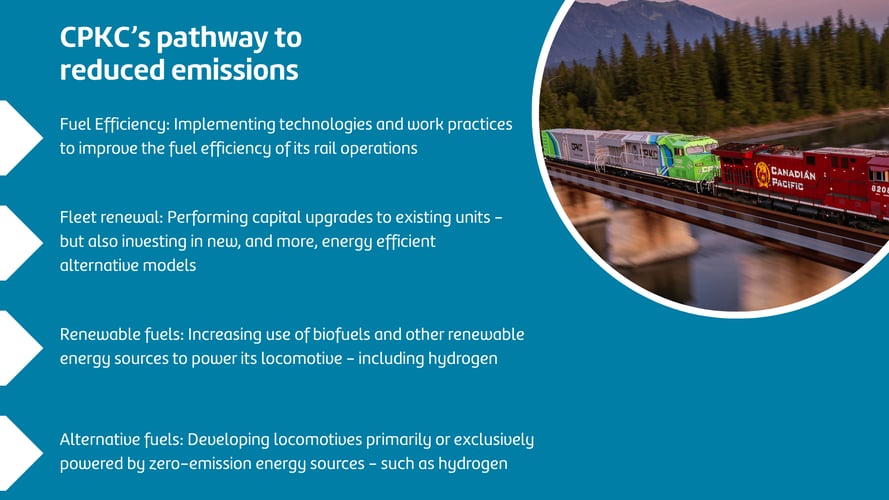
Standing out for its ambitious sustainability commitments, targeting a 36.9% reduction in greenhouse gas emissions by 2030, Canadian railway holding firm CPKC has doubled the size of its hydrogen test fleet as the company continues to invest in hydrogen power and sustainable energy projects on its path to decarbonized rail freight operations.
Building on the success of its Hydrogen Locomotive Program (HLP), CPKC’s fleet – powered by Ballard's FCwave™ fuel cells – has swiftly grown from initial movement trials to posting more than 6,000 miles of freight service testing by the end of 2024.
As CPKC's experience in the operation of hydrogen-based technology grows, the company is doubling down by adding three further decarbonized locomotives and a tender car to its operations - while an additional four locomotives are planned for late-2025.
The fleet consists of CPKC’s high-horsepower hydrogen locomotive, CP 1200, which integrates two FCwave™ zero-emission fuel cell engines into each unit. Ballard’s module is scalable from 200kW to 2MW, leveraging extensive experience from heavy-duty fuel cell engine product development for demanding applications and climates. FCwave™ provides a flexible, industrial grade decarbonized power solution that is low in total lifecycle cost and easily adaptable to power and space requirements.
This is the latest development in an exciting collaboration between the partners, following shortly on from the announcement of a long-term service agreement in December 2024, which will see Ballard supply 98 fuel cell engines to CPKC - providing approximately 20MW of clean power.

The CP 1200 is CPKC’s first line-haul locomotive which, paired with the fuel tender CP 10001, completed first-phase testing as part of a fully loaded bulk train on a 600km (370 miles) route in British Columbia from Sparwood to Golden, and back, in September 2024.
The unit continues trials as part of CPKC’s pilot program in cooperation with Elk Valley Resources and will be joined by its second line-haul locomotive – CP 1201 – which will commence field testing this year.
Supported with hydrogen infrastructure
Assisting its innovative HLP, CPKC – in collaboration with renewable energy power generator ATCO EnPower – completed the construction of hydrogen production and refueling facilities in Calgary and Edmonton in November 2024.
Now fully operational, each facility includes a 1MW electrolyzer, compression, storage, and dispensing systems for locomotive refueling. At the Calgary site, the electrolyzer is partly powered by renewable energy from CPKC’s existing 5MW solar power facility.
The two new hydrogen facilities will serve as a model for future and complementary projects across Canada – as CPKC aims to create a cleaner, more efficient mode of freight transportation that can serve as a model for the global rail industry.






